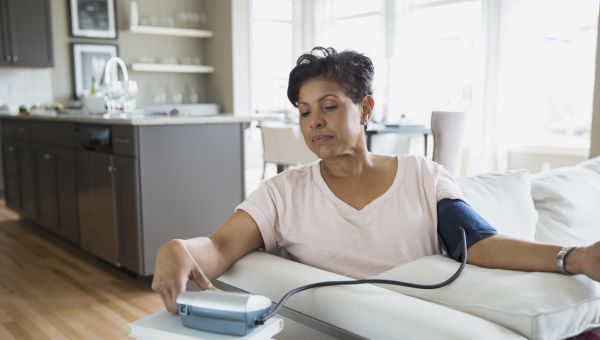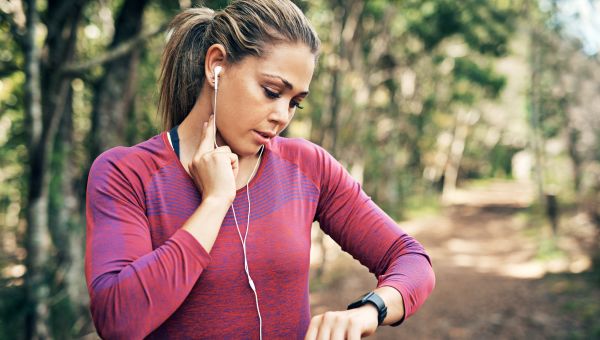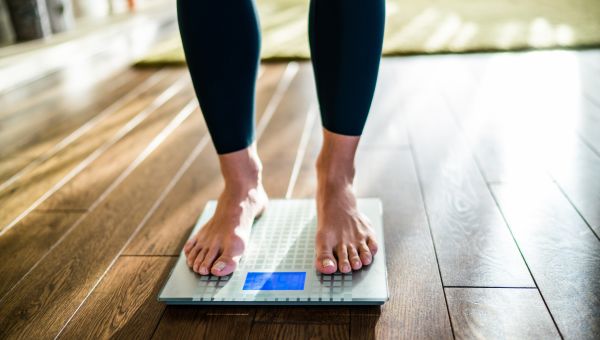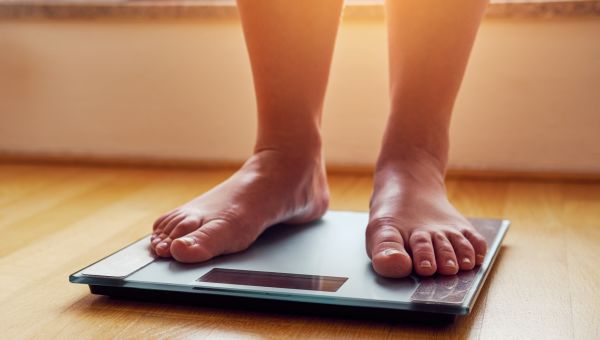4 simple diy health checks you should know
These handy self-exams take just minutes to complete.
Updated on January 9, 2024

There’s no replacement for routine appointments with your healthcare provider (HCP). But being in touch with your body between office visits can help you:
- Understand your risk for chronic illnesses like heart disease and diabetes
- Set wellness goals and track your progress
- Know when to call your HCP about health changes
We asked Richard Carter, MD, FACS, a surgeon specializing in general and breast surgery at Henrico Doctor’s Hospital in Richmond, Virginia about simple home health checks for people on-the-go. Here are four DIY tests that can fit into even the busiest of schedules and help you take command of your health.

Track your blood pressure
“High blood pressure increases your risk for stroke and heart disease, which is the number one killer of women,” says Dr. Carter. Check your numbers regularly so can get help when you need it—high blood pressure doesn’t usually cause any symptoms. Here’s how to do it:
- Buy a blood pressure machine at the pharmacy for around $30.
- Don’t use caffeine, nicotine or alcohol for 30 minutes.
- Put the cuff on. It should be snug, but with room to slip a finger underneath.
- Sit upright for five minutes with your arms resting at heart-level, feet flat on the floor.
- Press start; sit still while it takes your reading.
Your BP should be below 120 for the top number, less than 80 for the bottom.

Check your heart rate
“Track your heart rate over time, along with your blood pressure,” recommends Carter. It can clue you in on your overall health or tell you when it’s time to pause your cardio session.
To check your pulse, place your index and middle finger on your wrist, against the groove below your thumb. When you feel your pulse, watch a clock with second hands and count the beats for one minute.
Most adults should have between 60 to 100 beats per minute. A resting heart rate over 100 could signal medical problems like anemia, so let your HCP know.

Weigh in Regularly
People who check their weight regularly may be more likely to stick with their diet plan. That’s according to the National Weight Control Registry, which found that most people who lose weight and keep it off step on the scale at least weekly.
For people with heart failure, daily weigh-ins may actually be life-saving. Heart failure can make you retain water. That could cause fluids to back up into your lungs, keeping your body from getting the oxygen it needs. If you have heart failure, check the scale daily and call your HCP if you gain two pounds overnight or four pounds in one week.

Follow 4 simple rules for weighing in
Whether you’re checking your weight for medical reasons, or to track fitness progress over time, keep these pointers in mind:
- Place your scale on a flat surface and use the same scale every time
- Always weigh yourself at the same time of day, ideally first thing in the morning
- Step on the scale after you use the bathroom, but before you eat breakfast
- Weigh yourself with no clothes on or similar clothes each time
Remember: The scale works for you, not the other way around—it’s not your own personal judge or the decider of your self-worth. It’s there to arm you with information so you can make the best possible decisions about your health.

Know when the time’s right with an ovulation kit
Once a month, the ovaries release an egg, called ovulation. For most women, it’s around the 11th day after their period. If you’re trying to get pregnant, ovulation is the ideal time to have sex.
“There are over-the-counter kits that allow you to detect the amount of luteinizing hormone in urine, which spikes when your ovaries release an egg,” says Carter.
Ovulation kits come with several sticks so the test can be taken on different days. It works by either urinating onto a stick or placing it in a cup of urine. Depending on the brand, the color may change or a plus sign may appear to indicate a positive result. A plus sign means ovulation is likely to occur within the next 24 hours.
More On


video

article

slideshow


video


video
